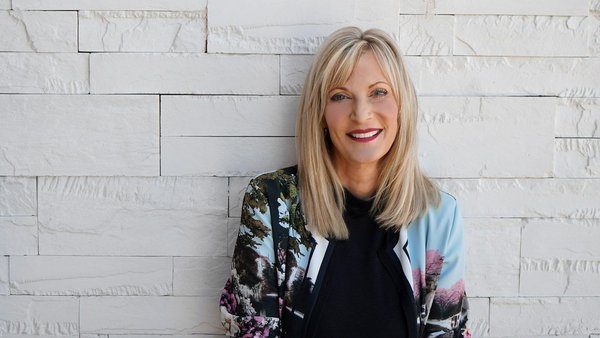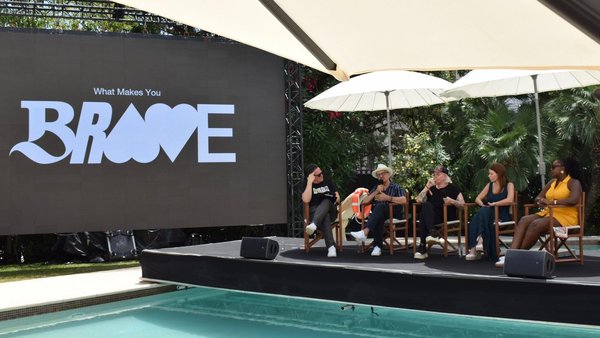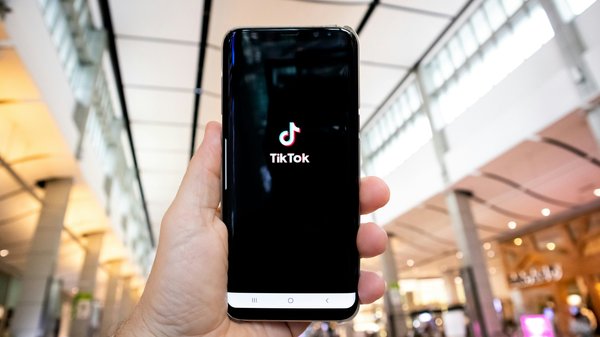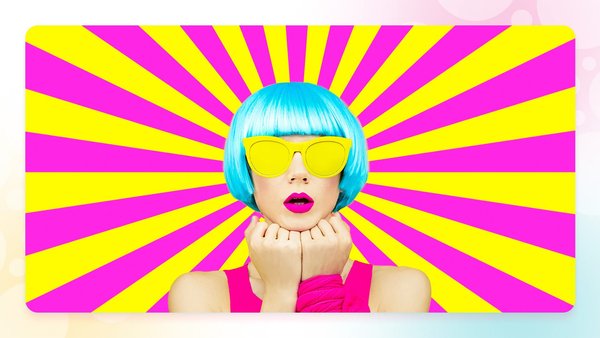Promoted content
Generation we, not me /
Edelman’s Gen Z Lab shared results from its Brand Trust research into young consumers around the world, which discovered vulnerability and opportunity.
Gen Z has outsized power when it comes to influencing purchase behaviour, according to research by marketing and communications firm Edelman.
Sixty eight percent of the people who responded to a survey by Edelman said that the generation consisting of those born between 1997-2012 influences how they shop – up seven percentage points on the previous year.
How can marketers harness the influence of this demographic?
The founders of Edelman’s Gen Z Lab, Jackie Cooper and Amanda Edelman, along with special guest Firdaous El Honsali, global VP at Dove, joined Contagious co-founder Paul Kemp-Robertson at the Contagious Villa in Cannes on 20 June to discuss what makes Gen Z tick – and buy.
The panel started with Jackie Cooper introducing the new report from Edelman, which collected data from 14 countries. One thing that stood out from the report, she said, was how vulnerable this generation of consumers feel amid global volatility and pressure.
‘This isn’t just a data story, it’s a human story of vulnerability,’ Cooper said. ‘But it’s also a story of opportunity.’
Edelman agreed, adding that brands needed to act as beacons of safety in a volatile world. According to the agency’s research, Gen Z’s need for trust and security from brands is the highest among all generations at 79%, up eight points from last year.
Another surprising insight, Cooper noted, is how the constantly online generation has uprooted the traditional linear purchase funnel. The sale is no longer the end point – 78% of consumers uncover things that attract them and make them loyal to a brand after their first purchase. The Gen Z Lab calls this phenomenon a ‘loop’, rather than a funnel. ’If you want to build trust with Gen Z,’ she said, ‘You have to be in their lives all the time.’ She indicated that one way to do this is through brand advocacy.
Kemp-Robertson then asked El Honsali how Dove connects with the Gen Z audience. El Honsali said that Dove has resonated with Gen Z because it is a brand that is not just purpose-driven, but is built around the action behind the purpose. ‘They want brands to stand next to them in having a positive social and environmental impact.’
She also pointed to the opportunities that stem from Gen Z’s propensity to join creator-centered communities. Brands can build more trust talking to young people through spokespeople whose values align with the brand than they could on their own.
Speaking about Dove’s Grand Prix-winning campaign, #TurnYourBack, El Honsali emphasised the importance of social listening. By launching off an organic conservation on TikTok, the brand was able to stay true to culture and turn the campaign around in 48 hours. She said: ‘I see marketers scared of touching TikTok because you lose control, but actually that can be really exciting.’
Kemp Robertson then asked how Gen Z are influencing the marketing industry. Edelman said, ‘When I think of Gen Z, the only word I think about is change.’ The generation has dealt with a lot of change, having had to adapt to the effects of Covid-19, climate change and war in Ukraine. They also are changemakers: they expect brands to stand for something.
She called Gen Z the generation of ‘we not me’. Many of the generation’s icons, such as Greta Thunberg and Amanda Gorman, stand for systemic change. Gen Z reward brands who stand with them for much broader causes.
But just because Gen Z are serious about social causes, doesn’t mean they don’t respond to levity. El Honsali referred to TikTok creators who are experimenting with Dove bars in a fun way, just like 70s Dove campaigns that featured real women testing out the product.
Edelman warned that brands need to find a happy medium between light and shade. Lean too far into escapism and brands risk coming across as tone deaf, but go too far the other way and then people don’t feel incentivised to buy. She finished up the talk by mentioning two brands who have got this balance right: Nike, with its championing of sports and strong stance on social issues; and Rare Beauty, the makeup brand led by Selena Gomez which puts mental health at the heart of its identity.
Download the full report by Edelman, here.
Want more of the same? /
We don’t just write about best-in-class campaigns, interviews and trends. Our Members also receive access to briefings, online training, webinars, live events and much more.




